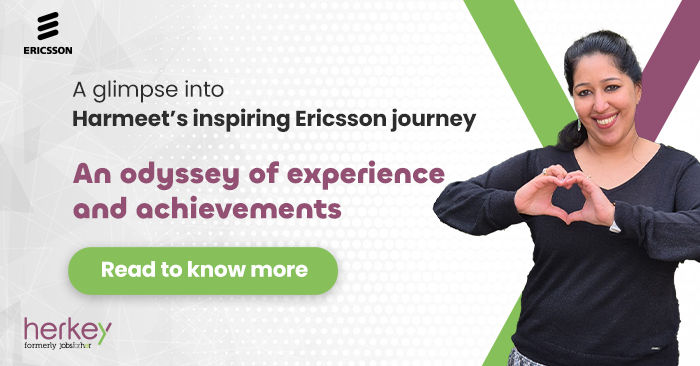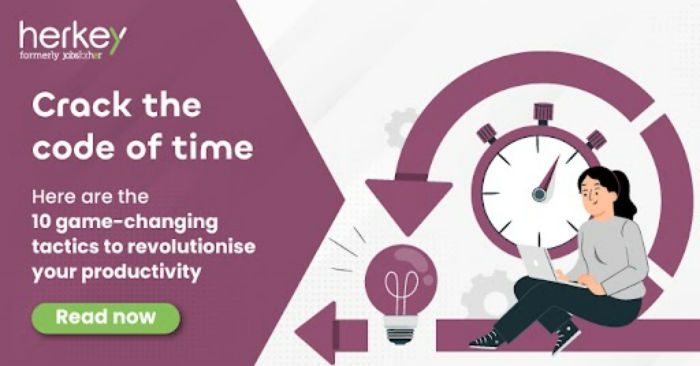Looking for a Mentor? Do This Instead.
- Thulasi
- in
- Expert Advice
- |
- 19 Sep 2016

“Who are the 3 people you normally turn to for guidance?” This is a question I invariably begin a lot of my workshops on mentorship with. The answer, for most, usually includes trusted friends, family members and individuals they consider to be their mentor. What the list almost never includes is the one name that should be on top of everyone’s list: your own.
 Why the appeal of a mentor is so alluring is clear to see. In fact, the role of the mentor is so crucial that Joseph Campbell considers it to be a central tenet in what he calls the Hero’s Journey, and we see that illustrated in many a popular story, be it Krishna to Arjuna in the Mahabharatha, Obi-wan-Kanobe to Luke Sykwalker in Star Wars, or Gandalf to Frodo in the Lord of the Rings. A mentor is considered to possess great wisdom, and comes to the hero (or heroin) at exactly the moment when she needs the benefit of the mentor’s expertise or experience to see a clear way forward. The mentor holds up a mirror to the hero, making her realize the hidden talents and strengths that she possesses, and helps her find the courage to take the leaps she would not otherwise.
Why the appeal of a mentor is so alluring is clear to see. In fact, the role of the mentor is so crucial that Joseph Campbell considers it to be a central tenet in what he calls the Hero’s Journey, and we see that illustrated in many a popular story, be it Krishna to Arjuna in the Mahabharatha, Obi-wan-Kanobe to Luke Sykwalker in Star Wars, or Gandalf to Frodo in the Lord of the Rings. A mentor is considered to possess great wisdom, and comes to the hero (or heroin) at exactly the moment when she needs the benefit of the mentor’s expertise or experience to see a clear way forward. The mentor holds up a mirror to the hero, making her realize the hidden talents and strengths that she possesses, and helps her find the courage to take the leaps she would not otherwise.
In the modern context, given the proverbial ‘glass ceiling’ in organizations and other constraints, social and cultural, that have held women back from attaining greater professional success, mentorship is usually touted as the solution to help women navigate the work place more effectively. Rightly so, given that women continue to be underrepresented in various professional arenas.
A mentor, then, can step in and fill the gaps in experience or expertise needed to fulfill one’s professional aspirations.
That a mentor is useful is without question. The right mentor can be incredibly valuable. I, personally, take great pride and delight in mentoring women looking for greater clarity in their careers. But, here’s the thing which often gets missed: by continually telling women to look outside of themselves for answers, we are, in effect, telling them to not trust or rely upon their own internal guidance system first – call it your intuition, your inner voice, or simply your own inner wisdom.
The truth is that each of us already possesses a wealth of wisdom. What we need, as Steve Jobs famously alluded to, is the courage to follow our hearts and our intuition for they somehow already know what is best for us. That’s not to say that we don’t need mentors. But rather, before we turn to a mentor, we need to first turn within, and ask ourselves the same pressing questions that we are looking for answers for. Moreover, the advice a mentor offers is filtered through a subjective lens – it’s what has typically worked for him or her. Only when we are firmly anchored in our own internal guidance system can we adapt a mentor’s advice to our personal context. Otherwise, by blindly following a mentor’s advice we risk making the wrong decisions.
So, how do we become better at turning to the greatest mentor there is – the one within? Learning to trust and take guidance from one’s own inner wisdom is a journey, but not nearly as elusive as you think it might be. That wisdom is there for us to tap into the moment we set the intention to do so. Here are four questions (variations of which many Mindfulness teachers use) that you can use in any situation that might be causing you anxiety, confusion or stress to find greater clarity and peace.
1. What am I experiencing in this moment?
The first step to clarity is to simply acknowledge what it is that you are feeling – the good, the bad and the ugly. We cannot get to the truth of what we must do if we are in denial about what it is that we really feel about a particular situation. This requires being brutally honest with oneself. Instead of relying on your mind, one effective way to know how you really feel about something is to move into your body. While our minds are a great way to access knowledge, our bodies are a great way to access wisdom. A gut feeling is quite literally how you feel in your gut. So, ask yourself – How do I really feel about this? What are the physical sensations I am experiencing in my body as I think about this? No change can happen without awareness, and this awareness opens the door to the way forward.
 2. Can I allow compassion to come into this moment?
2. Can I allow compassion to come into this moment?
The second thing is to not make ourselves feel wrong for feeling whatever it is that we are feeling (in the step above), which, as women, we often do because of the enormous pressure we put on ourselves to be perfect or to be liked by everyone. Maybe you would like to change jobs. Maybe you are a stay-at-home mom who is ready to go back to work. Maybe you no longer feel someone is right for your team. Whatever the case maybe, making the decision to be kind and compassionate towards yourself as your wrestle with tough questions goes a long way towards building self-acceptance and making yourself stronger for future decision-making.
3. What would the ideal version of me do in this situation?
Next, ask yourself what the ideal version of you would do in this situation. The ideal you is the highest version of yourself, or the woman that you are aspiring to be, the one you proudly want the world to see and know – the bold leader, the confident professional, the loving mother, however you wish to define the ideal you according to what matters most to you. How would she handle this situation? What would she do (or not do)? What would she say (or not say)?
4. What is the smallest action I can take to step mindfully forward?
Finally, what is the smallest action that you can take in this situation that will be a step in the right direction and consistent with the ideal outcome you are looking for. Often, the greatest antidote to the endless confusion we experience in our minds is a small positive action, which has the snowballing effect of setting a chain of successive positive actions into motion. The key to taking that first step is to make it so small you can’t say no – it’s scheduling that difficult conversation you know you must have, it’s reaching out to someone for help, it’s breaking your plan down into bite-sized pieces and taking the next small step. That said, sometimes, the best action can also be no action at all. Maybe the best move for you is to sleep on it, and take a decision or react only once have had a chance to gain some perspective or some composure.
These are seemingly simple questions, but incredibly powerful in helping you pause, anchor into how you really feel about something and make a decision that is aligned with what you truly desire. Once you know what you want to do, that’s when an external mentor can be most helpful in providing further direction or guidance. But, by first doing this introspection and tapping into our own wisdom, we can have the confidence that whatever we choose to do is best aligned with who we are.
So, next time, someone asks you whom you turn to for guidance, I hope the answer will be the greatest mentor of all: You.
This article originally appeared on Shenomics.com.
 About the Author:
About the Author:
Bhavna Toor is the founder of Shenomics – a Mindful Leadership training and coaching platform to help women live and lead from within. A passionate leadership, executive and transformational coach, Bhavna helps aspiring women from all walks of life express their highest selves freely and fearlessly. Bhavna has an MBA in Social Impact from the NYU Stern School of Business. Her life is fulfilled by living mindfully, loving generously and daring boldly.






